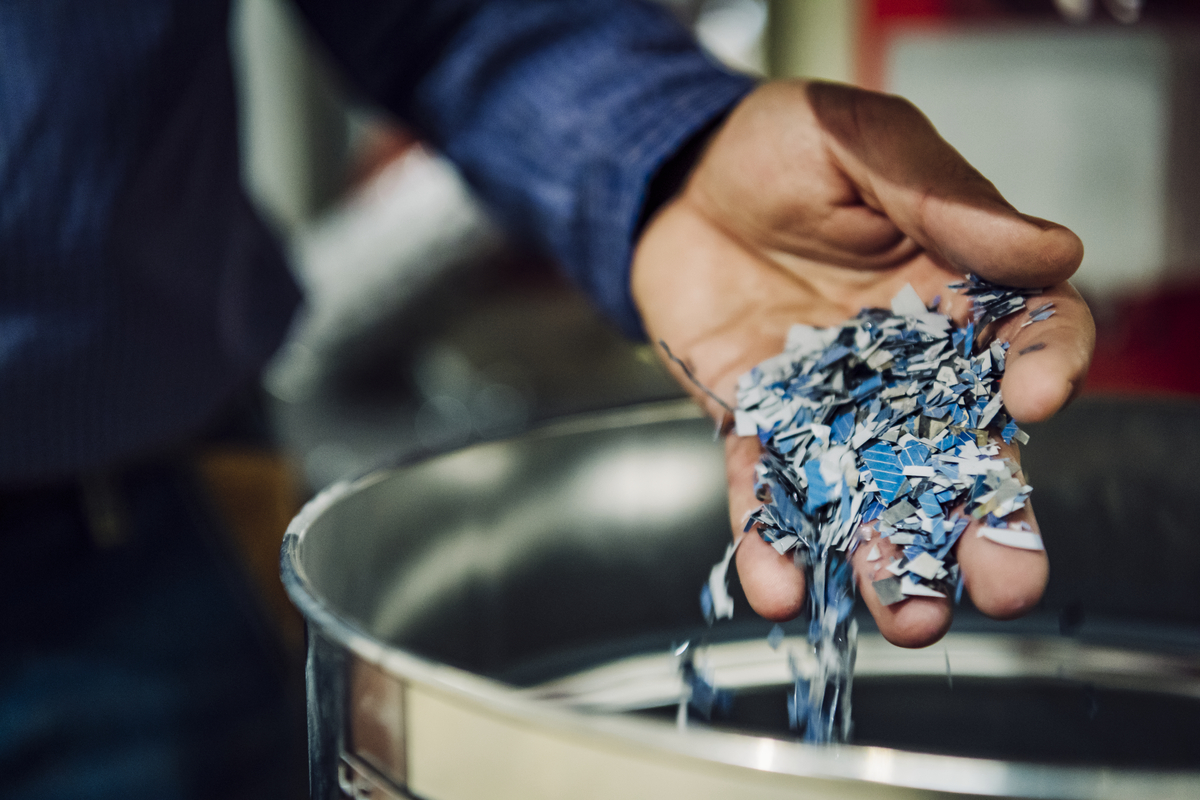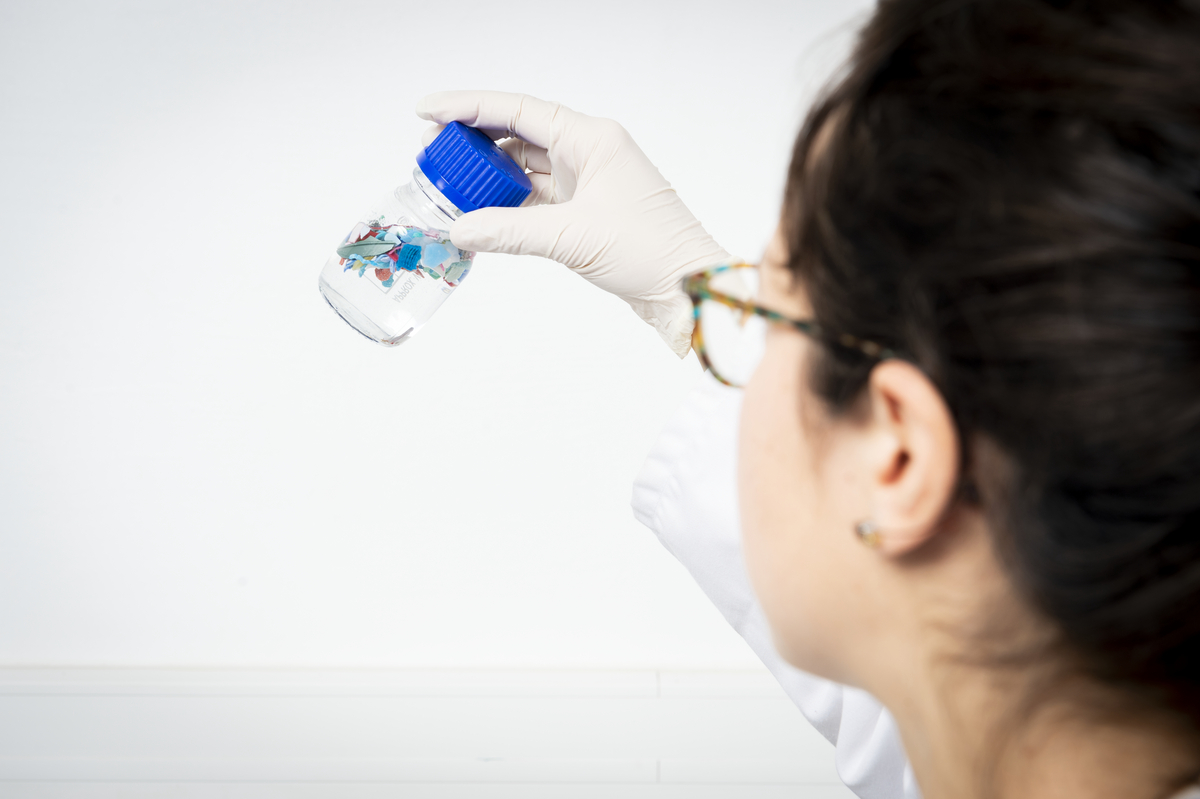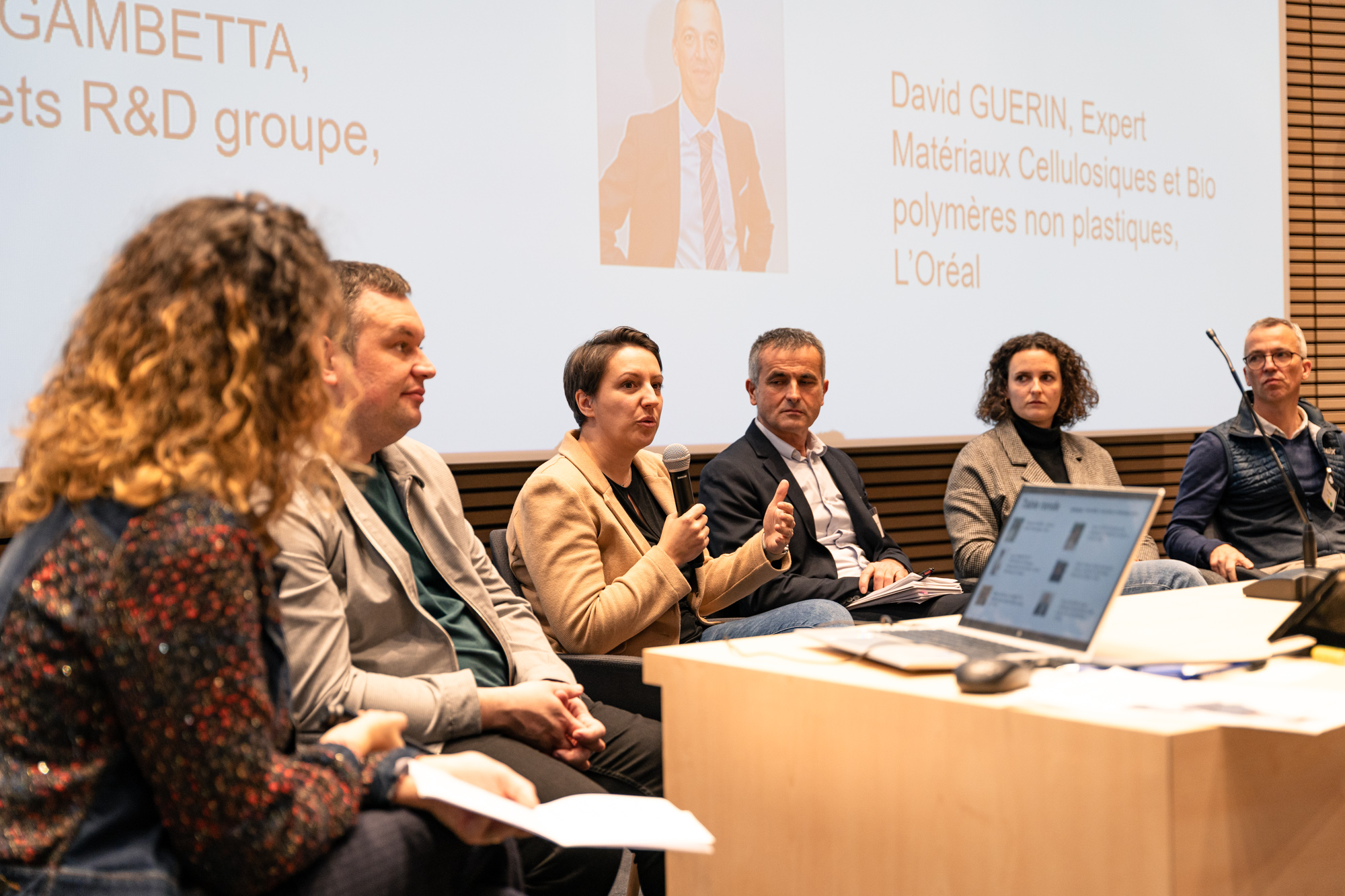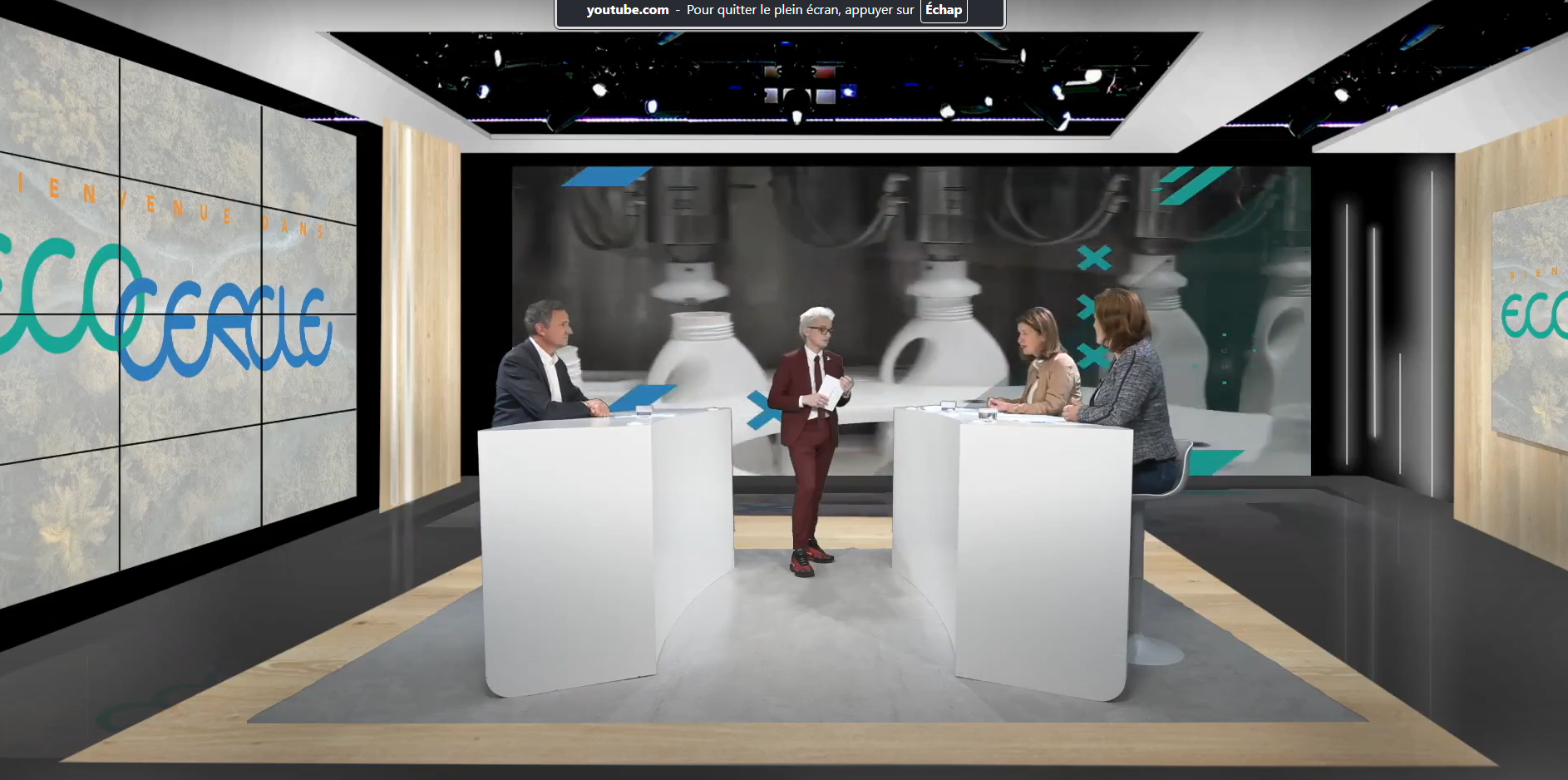
The loop between
research and society
Raw materials are running out, and recycling, although essential, is not enough to meet our needs. To address this challenge, AIFREC, a learned society dedicated to the circular economy, plays a key role in connecting disciplines and academic, economic, and political actors.
By Anaïs Culot
“Over the past ten years, the quantities of raw materials extracted worldwide have not decreased despite growing awareness of resource depletion and the environmental impact of their extraction,” notes Pascal Guiraud, a professor and researcher in process engineering involved in the PEPR Recycling program. In this context, recycling helps reduce the extraction of raw materials and strengthen our sovereignty over recycled materials, but its share is not sufficient. And although technical and organizational advances are needed to improve its performance, recycling alone cannot meet our society’s growing needs for materials.
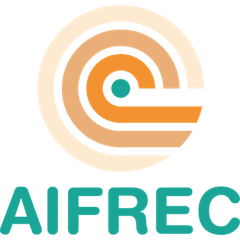
In order to reverse this trend, a more sustainable model is needed. This is the principle of the circular economy. “It aims to transform our production and consumption patterns so that they are no longer based on a linear model where resources are extracted, transformed into products, used, and then discarded,” explains Ligia Barna, head of the Household Waste division of PEPR Recycling. This model promotes, for example, the repair of objects, the reuse of packaging, and moderation in our consumption. Although recycling is an integral part of this, it should only be used as a last resort, as it remains technically demanding and energy-intensive.
The research conducted within the PEPR Recycling program draws on interdisciplinary expertise to promote technical and behavioral advances in waste management. Beyond its funding framework, it has the advantage of being able to rely on the French Interdisciplinary Association for Research in Circular Economy (AIFREC). “Science is at the heart of the association. It is led and supported by researchers, many of whom are also involved in the PEPR,” emphasizes Ligia Barna, who is also co-president of AIFREC with Pascal Guiraud.
Founded in 2023, this learned society already has 150 member researchers and more than 40 laboratories, companies, and associations, creating a unique network of collaborators across France. Its goal? To promote exchanges between scientists with diverse expertise and ensure the visibility of work on the circular economy at the national and international levels. To this end, AIFREC organizes conferences to disseminate results, know-how, and methodologies more widely.
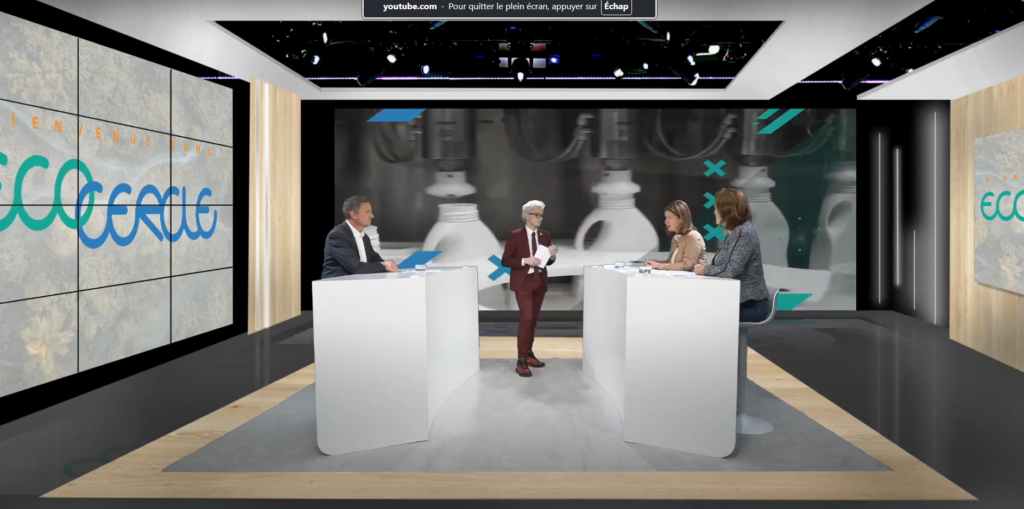
Welcome to the eco-circle
Since the start of the academic year, François-Michel Lambert, founder of the National Institute for Circular Economy and vice-president of AIFREC, has been hosting a TV show called “Bienvenue dans l’écocercle” (Welcome to the Eco-Circle) to discuss issues related to the circular economy.
Each month, a theme is explored with several key players in the field, in connection with a current event. Paris Fashion Week set the tone in September with a special program on textiles. This was followed by electric vehicles with the Paris Motor Show, then packaging at the All4Pack trade show. The latest program, on the theme of real estate, has been available since December 9 on the Ecocercle YouTube channel.
AIFREC also acts as an intermediary between the academic and political-economic worlds. Through its partnerships with local stakeholders, regional waste observatories, and parliamentarians, it ensures that scientific findings are grounded in reality and address the concrete challenges faced by industry and local authorities. Training courses for decision-makers and businesses, for example in Nouvelle-Aquitaine, reinforce the impact of advances in the field.
Finally, it enables a fixed-term program such as PEPR Recycling to make a lasting impact on society. “As a permanent structure, AIFREC guarantees the continuity of progress and its benefits. It thus contributes to establishing the credibility of the circular economy and anchoring its principles as a desirable model in the eyes of society,” concludes Pascal Guiraud.
More news
